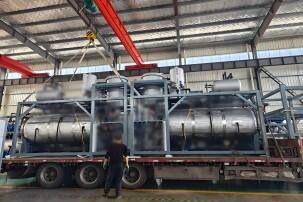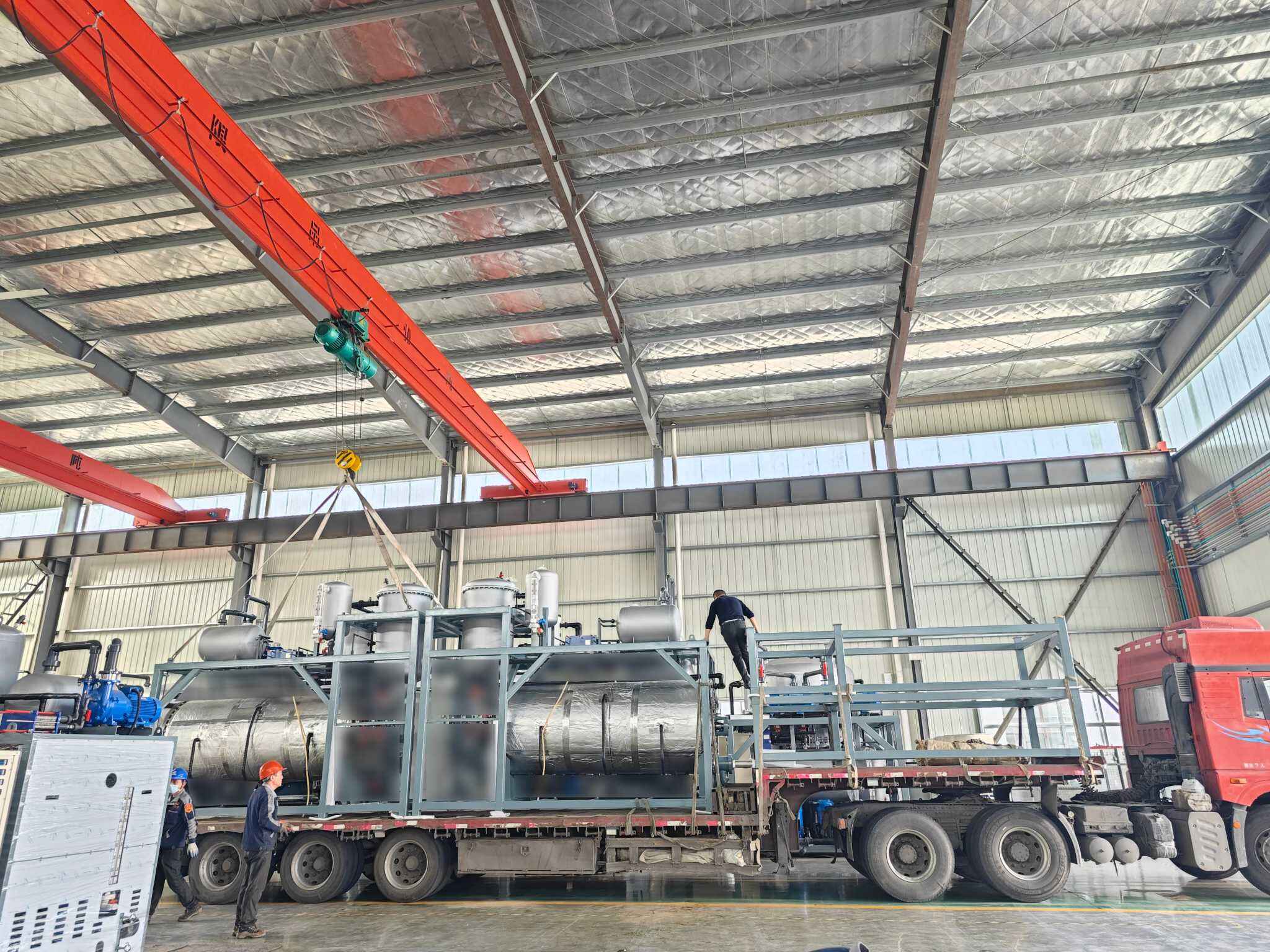How Crystallizer Machines Optimize Chemical Processing
Introduction to Crystallization in Chemical Processing
Chemical processing industries depend heavily on separation and purification methods to achieve high-quality products. Among these methods, crystallization is one of the most effective and widely used. It transforms dissolved substances into solid crystalline forms through controlled physical and chemical conditions. Crystallizer Machines are the advanced equipment used to execute this process efficiently and reliably. By managing parameters such as temperature, concentration, and agitation, they ensure optimal crystal formation that aligns with the quality and purity standards of the chemical industry.
Crystallizer Machines are particularly important in sectors like pharmaceuticals, agrochemicals, food additives, pigments, and specialty chemicals, where purity, consistency, and scalability are critical. Beyond producing high-purity compounds, they also recover valuable materials from by-products or waste streams, making them an essential tool for modern, sustainable chemical manufacturing.
The Role of Crystallizer Machines in Chemical Processing
Purification of Compounds
One of the core benefits of Crystallizer Machines in chemical processing is their ability to produce highly pure substances. Impurities are excluded from the crystalline lattice during crystal formation, resulting in a product that meets stringent specifications. For pharmaceuticals and fine chemicals, where quality directly impacts effectiveness and safety, crystallization is a preferred purification technique.
Separation of Components
Chemical processes often yield mixtures of multiple compounds. Crystallizer Machines allow selective crystallization of the desired compound while leaving others in solution. This separation is particularly valuable in multi-step processes, where isolating intermediates or by-products enhances efficiency and reduces costs.
Consistency in Particle Size
In chemical applications, particle size distribution significantly influences product performance. For example, in pigments, particle size affects color brightness and stability, while in pharmaceuticals, it impacts solubility and bioavailability. Crystallizer Machines enable precise control over crystal size and shape, ensuring consistent product quality.
Recovery of Valuable Materials
Chemical processes often generate waste streams containing useful compounds. Instead of discarding them, crystallization allows facilities to recover and reuse valuable materials, reducing raw material costs and minimizing environmental impact. This aligns with principles of resource efficiency and sustainability.
Types of Crystallizer Machines Used in Chemical Processing
Cooling Crystallizers
Cooling crystallizers reduce the temperature of a supersaturated solution to induce crystallization. They are widely used for temperature-sensitive compounds in chemical and pharmaceutical industries. Precise cooling rates enable uniform crystal formation, enhancing product consistency.
Evaporative Crystallizers
These machines evaporate the solvent to increase solute concentration until crystallization occurs. They are effective for compounds with low solubility differences and are commonly used in the production of salts, fertilizers, and industrial chemicals.
Vacuum Crystallizers
Vacuum crystallizers lower the boiling point of solutions by reducing pressure, allowing crystallization at lower temperatures. This is crucial for processing heat-sensitive chemicals that would degrade under high heat conditions.

Draft Tube Baffle (DTB) Crystallizers
DTB crystallizers are designed for continuous operation and provide excellent control over crystal size distribution. They are ideal for large-scale chemical production, ensuring efficiency and uniformity in output.
Optimization of Chemical Processes with Crystallizer Machines
Increased Efficiency
By automating the crystallization process, Crystallizer Machines reduce manual intervention and ensure stable operating conditions. Automation minimizes variability and maximizes throughput, allowing facilities to achieve more consistent results in less time.
Enhanced Energy Savings
Compared to separation methods such as distillation, crystallization often requires less energy. Advanced Crystallizer Machines are designed with energy recovery systems that reuse heat, making operations more cost-effective and sustainable.
Reduced Environmental Impact
Crystallization reduces waste by recovering valuable materials from by-products and wastewater streams. This minimizes disposal needs and contributes to environmentally responsible chemical processing. Many facilities adopt Crystallizer Machines specifically to comply with environmental regulations while reducing operational costs.
Improved Process Control
Modern Crystallizer Machines are equipped with sensors, automation systems, and digital interfaces that allow real-time monitoring of temperature, concentration, and supersaturation levels. This ensures precise process control and consistent product quality.
Flexibility Across Compounds
Chemical facilities often handle multiple compounds with varying solubilities and sensitivities. Crystallizer Machines are adaptable, capable of processing a wide range of chemicals while delivering predictable outcomes.
Industrial Applications in the Chemical Sector
Pharmaceuticals
In drug manufacturing, Crystallizer Machines produce active pharmaceutical ingredients (APIs) with high purity and consistent particle size. This ensures compliance with strict regulatory standards and guarantees therapeutic effectiveness.
Fertilizers
Chemical plants use Crystallizer Machines to produce fertilizers like ammonium sulfate and potassium chloride. The machines ensure large-scale production with uniform quality, meeting agricultural demands.
Pigments and Dyes
The brightness, stability, and performance of pigments and dyes depend on crystal size and purity. Crystallizer Machines provide the control necessary to deliver consistent and vibrant pigments for textiles, coatings, and plastics.
Agrochemicals
Herbicides, pesticides, and fungicides require precise particle size for effective application. Crystallizer Machines ensure controlled production, improving product performance and safety.
Specialty Chemicals
Specialty chemicals such as catalysts, additives, and fine chemicals demand high precision in composition and quality. Crystallizer Machines enable facilities to meet these standards efficiently.
Wastewater and By-Product Recovery
Chemical plants often face challenges in handling effluents containing dissolved solids. Crystallizer Machines extract usable compounds from wastewater, reducing environmental impact and creating new revenue streams from recovered materials.
Challenges in Using Crystallizer Machines
High Initial Investment
Installing Crystallizer Machines requires significant upfront costs. Facilities must evaluate long-term savings in efficiency, material recovery, and environmental compliance to justify the investment.
Technical Expertise Required
Operating and maintaining Crystallizer Machines demands skilled personnel. Proper training and experience are necessary to ensure optimal operation and prevent inefficiencies.
Maintenance Needs
Scaling, fouling, and corrosion can affect performance if not managed with regular maintenance. Preventive maintenance schedules are essential for sustained efficiency.
The Future of Crystallizer Machines in Chemical Processing
As industries embrace digital transformation, Crystallizer Machines are evolving into smarter systems integrated with artificial intelligence and the Internet of Things (IoT). Future machines will be capable of predictive maintenance, self-optimization, and enhanced energy recovery. Additionally, the growing emphasis on sustainability will push the development of crystallizers powered by renewable energy sources. By combining automation, digitalization, and eco-friendly design, next-generation Crystallizer Machines will play an even more critical role in optimizing chemical processing.
Conclusion
Crystallizer Machines are indispensable in chemical processing, offering a powerful combination of purification, separation, and recovery capabilities. By providing precise control over crystal formation, they optimize efficiency, reduce waste, and improve product quality across industries ranging from pharmaceuticals to specialty chemicals. Although challenges such as initial costs and technical requirements exist, the long-term benefits in efficiency, sustainability, and profitability make Crystallizer Machines an essential investment. As technology continues to advance, their role in chemical processing will expand, driving smarter, greener, and more efficient operations.
FAQ
What role do Crystallizer Machines play in chemical processing?
They purify compounds, separate mixtures, recover valuable materials, and ensure consistent product quality in chemical industries.
What types of Crystallizer Machines are most common?
Cooling, evaporative, vacuum, and draft tube baffle crystallizers are widely used, each suited for specific applications.
Why are Crystallizer Machines important in pharmaceuticals?
They produce active pharmaceutical ingredients with precise purity and particle size distribution, ensuring safety and compliance.
Do Crystallizer Machines save energy?
Yes, they often consume less energy than distillation and can be designed with energy recovery systems.
Can Crystallizer Machines process heat-sensitive materials?
Yes, vacuum crystallizers are specifically designed to handle materials that degrade at high temperatures.
How do Crystallizer Machines support sustainability?
They recover valuable materials from by-products and wastewater, reduce raw material use, and minimize environmental impact.
What are the main challenges in using Crystallizer Machines?
High initial investment, technical expertise requirements, and regular maintenance are the main challenges.
Are Crystallizer Machines scalable?
Yes, they can be scaled from laboratory models for R&D to large-scale industrial systems.
How do Crystallizer Machines improve process control?
They include sensors and automation systems that monitor and adjust parameters in real time to ensure consistency.
What future advancements are expected in Crystallizer Machines?
Integration with IoT, predictive maintenance, renewable energy compatibility, and smarter automation are key trends shaping the future.
Table of Contents
- How Crystallizer Machines Optimize Chemical Processing
- Introduction to Crystallization in Chemical Processing
- The Role of Crystallizer Machines in Chemical Processing
- Types of Crystallizer Machines Used in Chemical Processing
- Optimization of Chemical Processes with Crystallizer Machines
- Industrial Applications in the Chemical Sector
- Challenges in Using Crystallizer Machines
- The Future of Crystallizer Machines in Chemical Processing
- Conclusion
-
FAQ
- What role do Crystallizer Machines play in chemical processing?
- What types of Crystallizer Machines are most common?
- Why are Crystallizer Machines important in pharmaceuticals?
- Do Crystallizer Machines save energy?
- Can Crystallizer Machines process heat-sensitive materials?
- How do Crystallizer Machines support sustainability?
- What are the main challenges in using Crystallizer Machines?
- Are Crystallizer Machines scalable?
- How do Crystallizer Machines improve process control?
- What future advancements are expected in Crystallizer Machines?

